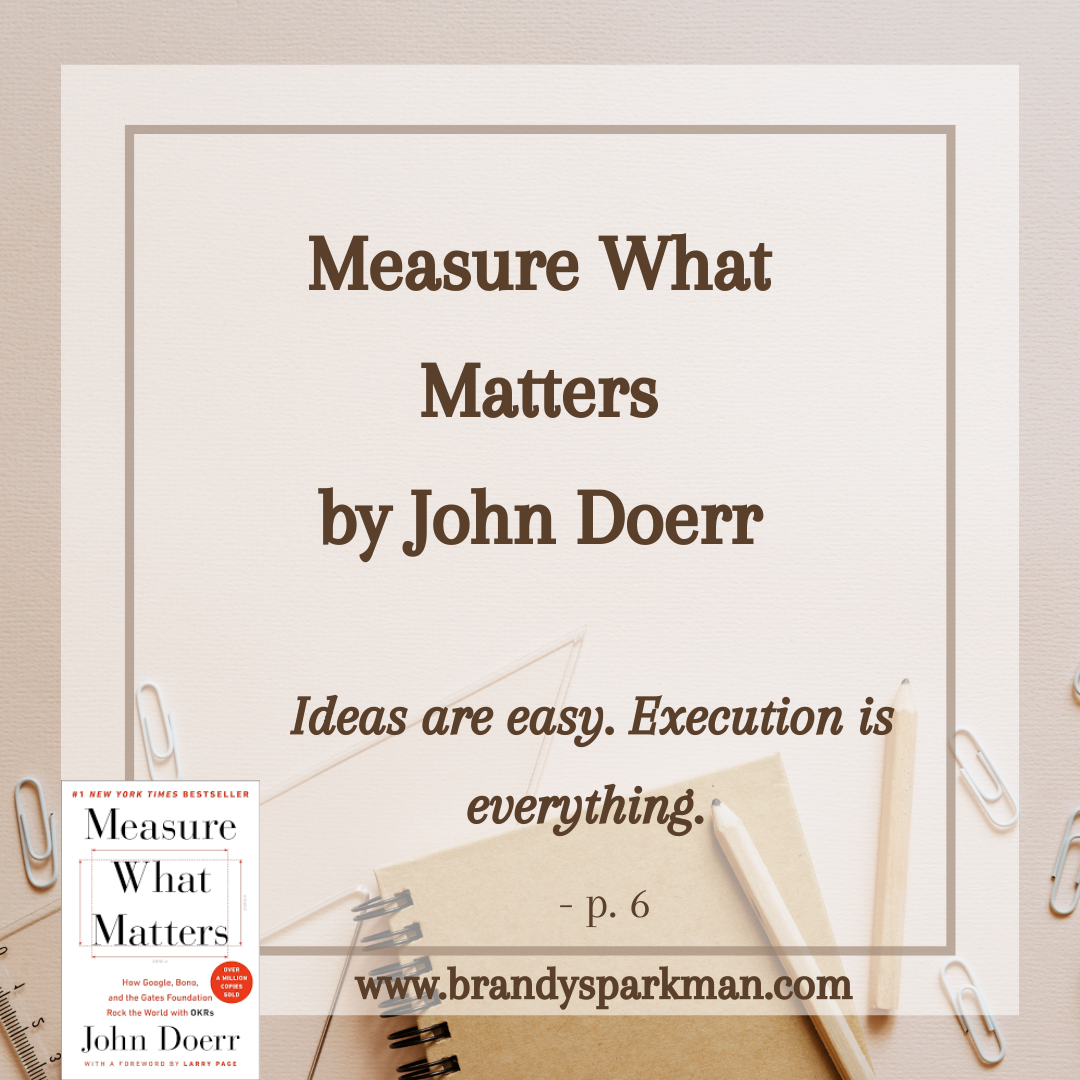Measure What Matters
In a previous blog post, I shared about building a second brain. You can read more about that here.
In that post, I share how I am journaling my key takeaways from the books I am currently reading. I decided to take another step and create a digital journal to share a summary and key takeaways from each book.
Summary
"Measure What Matters" by John Doerr is a comprehensive guide on the use of Objectives and Key Results (OKRs) as a goal-setting framework to drive organizational performance and foster innovation. The book explains how OKRs can help companies focus on what truly matters, create alignment, and promote accountability. Doerr illustrates the principles of OKRs with real-world examples from successful companies like Google, Intel, and Intuit. He emphasizes the importance of setting ambitious objectives and quantifiable key results, and how regular tracking and evaluation can lead to remarkable achievements and continuous improvement.
Key Takeaways
Establish clear, ambitious objectives that inspire and challenge your team or yourself.
Ensure that each objective has specific, quantifiable key results to track progress and measure success.
Conduct regular check-ins to review progress, adjust strategies, and stay on track toward achieving the objectives.
Encourage transparency by making OKRs visible across the organization to ensure everyone is aligned and aware of the goals.
Use OKRs to push the boundaries and drive innovation by setting stretch goals that go beyond incremental improvements.
Keep the focus on the most important priorities to drive meaningful outcomes and avoid distractions.
“We must realize—and act on the realization—that if we try to focus on everything, we focus on nothing.” -p 56
Action Item
Implement OKRs
One key action item to take away from "Measure What Matters" is to implement the OKR framework within your organization or personal projects. Start by setting clear, ambitious objectives and define measurable key results to track progress. Regularly review and update these OKRs to ensure alignment with your overall goals and to drive accountability and performance. This practice can help maintain focus on the most critical priorities and facilitate continuous improvement and innovation.
Read more book reviews: Click Here to Read More







